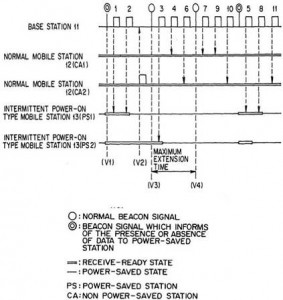The Federal Circuit recently affirmed that an admission that an accused infringing device practices an industry standard may, without more, be the basis for a finding of infringement. Fujitsu, LG and Philips v. Netgear, US Court of Appeals for the Federal Circuit (10-1045).

The three plaintiffs, part of a licensing pool (Via Licensing) that purports to include patents that any manufacturer of 802.11 and WMM compliant products must license. The plaintiffs never identified particular claims or accused products prior to filing. The plaintiffs argued that by simply complying with the standard, Netgear necessarily infringed the asserted claims. The court said that the plaintiffs must show evidence of infringement for each accused product. Fujitsu, LG, and Philips appealed the district court’s denial of summary judgment of infringement and grant of summary judgment of noninfringement.
Netgear argued that the court should establish a rule precluding the use of industry standards in assessing infringement. Instead, Netgear wants any plaintiff to separately accuse and prove infringement for all accused products, even if those products all comply with a standard that is relevant to the patent-in-suit. It argued that it is legally incorrect to compare claims to a standard rather than directly to accused products. Netgear also argued that a holding that practicing a standard infringes a patent would amount to an automatic conclusion of infringement against all future accused infringers. It argues that these later litigants would be deprived of a fair opportunity to prove that their products do not infringe.
An amicus brief by Association of Corporate Counsel, supporting Netgear, argued that it is dangerous to assess infringement based on a standard because the text of a standard may not be specific enough to ensure that all possible implementations infringe a patent claim. Further, it argues that many standard sections are optional and that users may never activate a potentially infringing feature. Finally, to allow this type of analysis would have a “chilling effect” on industries that rely on standards. It argues that companies would be less likely to comply with industry standards if a patent owner can argue that all compliant products infringe.
Philips argueds that it is more efficient for courts to assess infringement based on industry standards when applicable. It can alleviate the need for highly technical fact-finding such as the review of complicated source code and save judicial resources by not requiring the courts to separately consider products that all function in accordance with that standard.
The Federal Circuit affirmed that this can certainly be the case:
We hold that a district court may rely on an industry standard in analyzing infringement. If a district court construes the claims and finds that the reach of the claims includes any device that practices a standard, then this can be sufficient for a finding of infringement. We agree that claims should be compared to the accused product to determine infringement. However, if an accused product operates in accordance with a standard, then comparing the claims to that standard is the same as comparing the claims to the accused product. We accepted this approach in Dynacore where the court held a claim not infringed by comparing it to an industry standard rather than an accused product. An accused infringer is free to either prove that the claims do not cover all implementations of the standard or to prove that it does not practice the standard.
Public policy weighs in favor of this approach. If a court determines that all implementations of a standard infringe the claims of a patent, then it would be a waste of judicial resources to separately analyze every accused product that undisputedly practices the standard. This is not prejudicial to present or future litigants. If two products undisputedly operate in the same manner, a finding of infringement against one will create a persuasive case against the other. In such a case, there will be no prejudice.
We acknowledge, however, that in many instances, an industry standard does not provide the level of specificity required to establish that practicing that standard would always result in infringement. Or, as with the ’952 patent, the relevant section of the standard is optional, and standards compliance alone would not establish that the accused infringer chooses to implement the optional section. In these instances, it is not sufficient for the patent owner to establish infringement by arguing that the product admittedly practices the standard, therefore it infringes. In these cases, the patent owner must compare the claims to the accused products or, if appropriate, prove that the accused products implement any relevant optional sections of the standard. This should alleviate any concern about the use of standard compliance in assessing patent infringement. Only in the situation where a patent covers every possible implementation of a standard will it be enough to prove infringement by showing standard compliance.

[…] This post was mentioned on Twitter by saveinventors, Jon and Jean-Nicolas Delage, PriorSmart. PriorSmart said: "Practicing an Industry Standard May Be Basis For Infringement" http://bit.ly/aqk6o8 (from patentbaristas.com) #patent […]
[…] CAFC: Compliance with industry standards can be used to show patent infringement: Fujitsu et al v. Netgear (Filewrapper) (Patently-O) (Patent Baristas) […]